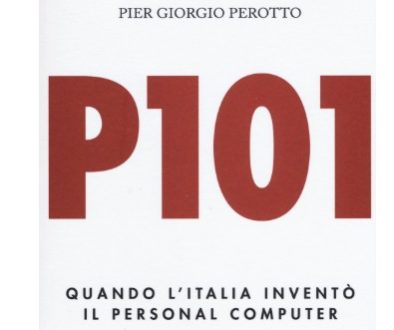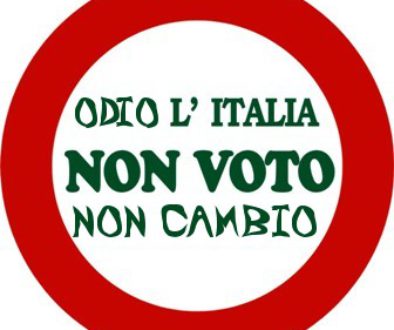SUMMARY OF THE REFERENDUM 1 – Why’ NOT vote for him
THE 31 maggio ho studiato il quesito referendario n° 1 finding in many anomalies, and always finding further even after. To begin with the question CONCERNS NOT THE ONLY WATER, but concerns also the companies TRANSPORT, WASTE and companies on all local public services, currently managed by municipalities or by their companies-consortium. GIA’ questo configurava una grave stortura e anomalia dell’informazione che parla della sola ACQUA. Only when my complaint had been watched by an estimated 100.000 people are determined to change public spots.
But even they lied about the fact that it is rather the water distribution, facendo credere che l’acqua sia stata “privatized” AND THIS IS’ certainly FALSE. It is an obvious forced to create an emotional wave which effectively conceals the question really involved.
Quello che il referendum intende cancellare è l’art.23 BIS di una legge che da una parte regolamenta il mercato dei servizi pubblici locali di interesse economico (transport such as metro and tram , Takeout waste, water distribution, cleaning and maintenance streets, care services, ma NON energia elettrica e NON gas naturale che sono già regolamentati).
L’articolo che si vuole cancellare fa parte di una legge che ATTUA NORME EUROPEE, but with choices in part “Italian” perché è facoltà’ degli stati di trovare una propria ricetta all’interno di ottiche comuni europee e di legislazioni che si avvicinano. L’Italia dal 1 DECEMBER 2009 non è più uno stato sovrano, but a kind of EU autonomous region.
The EU regulates the issue SERVICES OF LOCAL ECONOMIC VALUE.
An economic value is the fact that they are paid, so I'm not questioning the social services that do not provide for a fee based on the performance. But they are included in the price Services, come l’acqua, Transports, etc.
THE “Protocol 26” annexed to the Lisbon Treaty concerns the “General economic interest Services” , and defines that they may be different from country to country, cioè di qualità diversa, based on history, cultural and geographical situations and policies, but nonetheless they must be “qualità’, and universal access to”.
Principi generale che però delimitano le scelte del legislatore e NON POSSONO ESSERE DEROGATI perché di fonte sovraordinata.
Questo tuttavia non impone né che un certo Stato debba “TO POSSESS” for example the aqueducts, Rather, è facoltà dello stesso di vendere anche i tubi dell’acqua, né che non li debba possedere.
Quello che i trattati impongono è che quando è possibile si debba permettere che un certo servizio possa essere svolto dai privati però dietro gara pubblica per l’appalto.
The question’ This : HOW DOES A COUNTRY THAT LIVES ON CONTRACT rigged TO COVER THESE PRINCIPLES?
I trattati europei da una parte garantiscono la universalità dei servizi, ma dall’altra impongono un “approach” regulations.
L’articolo 23-bis che si vuole cancellare riafferma gli stessi principi europei, but also other states 2 important.
In sintesi l’art.23 BIS (which is’ of 4 pages) It contains 3 principles:
1- THE PROPERTY’ NETWORK OF PUBLIC also for the future, Also for new plants paid by the private, argomento specialmente importante per la questione della distribuzione dell’acqua
2- la universalità’ services, cioè la garanzia che l’acqua (but also transport ) They are a common asset guaranteed to all, as mentioned comes from the European Treaties
3 – a limited participation of the private companies only where possible, only in order to innovate the networks that are public, solo se europee e di paesi che rispettano la reciprocità’, and in any case all ruled by CALLS FOR EUROPEAN PUBLIC
The third principle implements European standards (competition where possible) ma in più impedisce la concorrenza sleale di altri stati e l’arrivo selvaggio delle multinazionali
The victory of “AND” delete all 3 and early, ed essendo un referendum ABROGATIVO con il sì viene espressa la CONTRARIETÀ’ all principles.
Certamente i comitati per l’acqua sono invece A FAVORE della proprieta’ PUBLIC NETWORK, and they are called to vote on THAN AGAINST WHO BELIEVE.
When the principle is denied IT CAN NOT’ MORE’ Also BE APPLIED for past and future laws, as in the case of the nuclear. This is’ absolutely not disputed point even by the promoters of the referendum
and early 2 E 3 They are of European source, and then reintroduced MUST BE WHY’ ARISING FROM ARTICLES 14, 104 E 106 THE TREATY ON THE FUNCTIONING OF THE EUROPEAN UNION.
Anche se eventualmente dal punto di vista dei comitati si può discutere sulla questione delle partecipazioni, cioè se sia tollerabile una partecipazione al 40% of private companies in public servants (E’ So today the law requires, at least 40%), I do not think they know that LOSE THE PROPERTY’ PIPES !!!
Anyway, the aim of blocking the partial privatization and’ del tutto INUTILE perché verranno reintrodotti per forza.
E’ infatti l’Unione Europea a imporre una parziale liberalizzazione dei servizi, solo dove possibile e non dove il servizio deve essere garantito a spese della collettivita’. This is to improve the internal market, which is’ la base genetica dell’Europa e di ogni civilita’ which lasted at least 1 century.
In practice, with the victory of It’ , it remains true that clears the “WARRANTIES POPULAR” sull’acqua e sugli altri servizi pubblici (local transportation, Takeout waste etc.) , ma rimarranno intatte le liberalizzazioni che sono imposte dall’Europa.
Moreover, Today strong public companies can safely continue to remain IN HAND TO COMMON FOR 60% DELLA PROPRIETA’, and they can not be bought by multinational (Note that the sale of shares EXPANDS MUNICIPAL BUDGETS)
Con la vittoria del sì verranno tolte ai comuni, and dates to the State, che farà tutto un calderone. Poi però le norme europee imporranno lo spezzatino e LE MULTINAZIONALI COMPRERANNO SOLO I PEZZI BUONI
In my opinion this operation and’ potentially useful only to certain powers:
– the political caste of the trumpet and pest parked in public bodies, taking salaries and pensions of Riley, in addition to their parties who ate and squandered for decades.
– municipalities that are owners of failed public companies : they will be lumped together with those effective in a Single State Agency, perché la loro gestione verra’ subtracted to municipalities, and pay off the balance sheets in red primarily South with companies active primarily in the Northeast that contribute to the municipal budget.
– multinationals, that after the creation of the Single Agency to provide services should buy at auction for pennies around the sideshow, while today can only buy companies FAILED AND pillaged, certainly not those efficient and healthy.
– coloro che non hanno mai pagato le bollette dell’acqua, waste etc. that will erase debt.
Who will raise us’ :
– common today owners of healthy companies that will be in red (less income, less capital, più costo dei prestiti)
– citizens that are now separate , che mentre oggi lo fanno per aziende di proprietà comunale ( in pratica per sé stessi), then they will do it for new owners
– i cittadini di comuni con aziende locali efficienti che oggi pagano tariffe decenti che verranno accorpate alle società campane
– those who have always paid the bills and that they will put on a par with those who failed to pay.
The insights of the individual subjects and the video analysis of the law in the referendum are on other pages.
Loris Palmerini
www.palmerini.net





